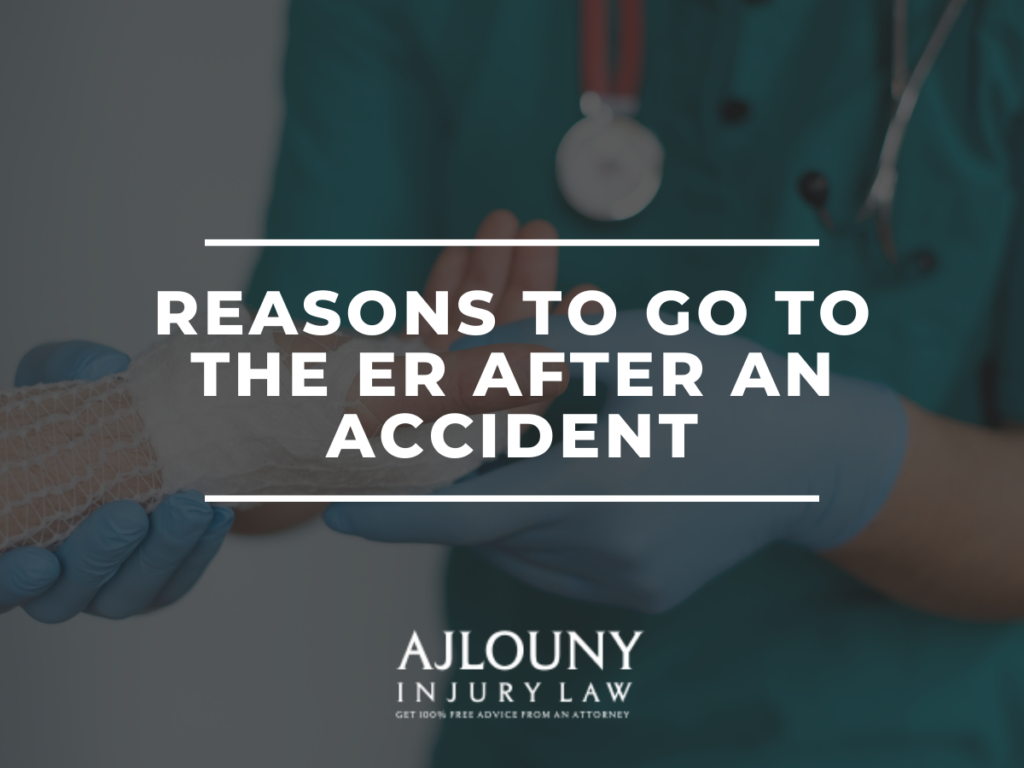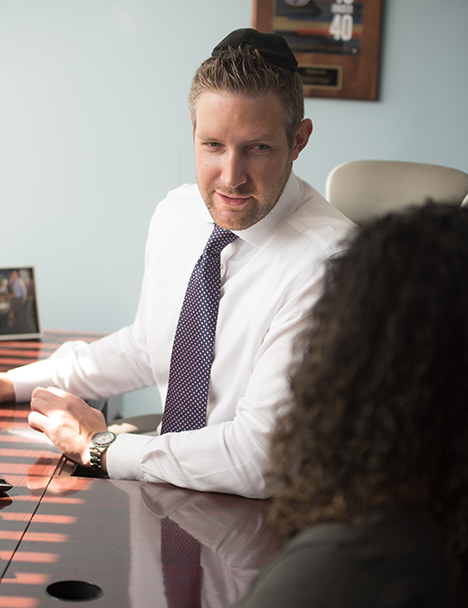Seeking the Right Medical Treatment After an Accident-Related Injury
Even a low-speed impact can take a devastating toll on your health. Most car accidents happen suddenly, rarely allowing a chance to brace for the collision. While obvious, life-threatening injuries clearly need to be treated immediately, it can be difficult for the average person to determine whether their accident-related injuries should prompt a trip to the emergency room.
At Ajlouny Injury Law, our attorneys provide free legal advice for individuals who have been injured in a car accident in New York City. We can help you maximize your compensation. Contact our office today at (718) 233-3913 to discuss your case directly with an experienced lawyer and get the dedicated legal representation you deserve.
Signs That You Need to Go to the Emergency Room
Significant loss of blood, broken bones, lack of consciousness are all clear indicators that you need emergency medical treatment, but what happens when your injuries are less obvious?
In many cases, the unexpected impact of another vehicle can cause adrenaline to pump through your body or leave you in shock, unable to determine the true extent of your injuries. To ensure that you receive the largest possible recovery for your case, it is imperative that you seek medical treatment right away.
If you are experiencing any of the following after a car accident, you need to go to the emergency room:
- Pain or Discomfort
Any signs of pain or discomfort throughout your body can be an indication of a more serious injury. You should particularly seek treatment if you start to feel any pain in your back, head, or neck. A visit to the emergency room can not only put your mind at ease, but it can also help you start on your road to recovery.
- Difficult or Painful Breathing
Common car accident injuries include those that cannot be seen with the naked eye. Any time that you have difficulty breathing, you need to seek emergency medical treatment. Trouble breathing or shortness of breath can be a sign of a pulmonary contusion (bruised lung) or, in more severe cases, a punctured lung. Left untreated, damage to the lungs can be fatal.
- Concussion Symptoms
If you are involved in a motor vehicle accident, it is vital to take any concussion symptoms seriously. Concussions can range in severity from minor to severe, but any indication of a head injury should be evaluated by a medical professional.
Signs of a concussion include:
- Balance issues
- Dizziness
- Nausea or vomiting
- Dilated pupils
- Confusion
- Blurred vision
- Slurred speech
- Tingling or Numbness
Tingling or numbness after a car accident can signify a spinal cord injury, pinched nerve, whiplash, or a spinal disc that has slipped out of place. Failure to seek treatment can result in debilitating pain.
Injured in an Auto Accident? Contact Ajlouny Injury Law for Free Legal Advice.
If you are unsure about whether your injuries are significant enough to warrant a trip to the emergency room, you should still be seen by your primary care physician or an urgent care doctor as soon as possible. Failing to seek medical treatment can impact your physical and financial recovery.
Call Ajlouny Injury Law to discuss your case with an experienced NYC car accident attorney. All consultations are 100% free, and there are no attorney’s fees unless we win. Contact our office at (718) 233-3913 to find out how we can help



